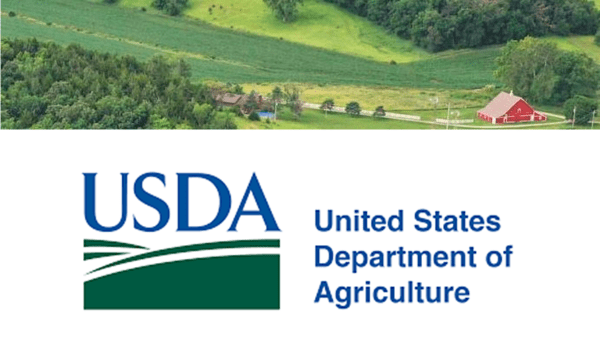WASHINGTON, Sept. 20, 2023 – The U.S. Department of Agriculture (USDA) today announced an additional $25 million investment to expand efforts to prevent and reduce food loss and waste.
The investment, funded under the American Rescue Plan Act (ARPA), is part of a joint agency initiative between USDA’s National Institute of Food and Agriculture (NIFA) and USDA’s Office of the Chief Economist (OCE).
In the United States, over one-third of all available food goes uneaten through loss or waste. When food is tossed aside, so too are opportunities for improved food security, economic growth and environmental prosperity.
“USDA NIFA is extensively engaged in research, Extension and educational activities to mitigate food loss and waste,” said Dr. Chavonda Jacobs-Young, USDA Chief Scientist and Under Secretary for Research, Education and Economics. “Several NIFA grant programs focusing on this issue align with USDA’s cross-cutting priorities to address the impacts of climate change, ensure food and nutrition security, strengthen rural economies, and ensure racial justice and equity.”
Since 2017, NIFA has committed $123.5 million across 527 projects relating to food loss and waste. This latest investment will expand several of NIFA’s core programs by $25 million.
The funding will support the Community Food Projects (CFP) Competitive Grants Program to reduce food loss and waste; get surplus wholesome food to individuals; and develop linkages between food producers, providers and food recovery organizations. The primary goals of CFP grants are to provide communities a voice in food system decisions and to support local food markets to fully benefit the community, increase food and nutrition security, and stimulate local economies.
NIFA has awarded $4.3 million to 12 CFP Food Loss and Waste projects from the fiscal year 2023 Request for Applications competition. These projects meet the goals of the program and integrate actionable activities that reduce food waste within the local food system by keeping wholesome food in the human food supply chain and saving money for families and businesses.
“The programs supported by this funding are cornerstones in NIFA’s agriculture, food safety and nutrition portfolio,” said NIFA Director Dr. Manjit K. Misra. “This funding will increase engagement around nutritional health from the classroom to the community, with an emphasis on reducing food loss and waste.”
Examples of funded projects include:
• Aloha Harvest in Honolulu, Hawaii will address Hawaii’s critical need to reduce food insecurity and food waste by rapidly scaling and diversifying food rescue to expand capacity for collection of greater volume, longer storage periods and food processing, contributing to a more resilient local food system better able to recover from crises.
• Oko Urban Farms Inc. in Brooklyn, New York, will use aquaponics and a mixture of aquaculture and hydroponics to achieve their goal of improving low-income residents’ access to nutritious foods through reduction of food waste and development of the local food system’s workforce.
• St. Mary’s Regional Medical Center in Lewiston, Maine, will launch a community-run cooperative market with low-cost groceries, shared commercial kitchen spaces, dry/cold storage to serve area small-scale farmers and food producers, and a community event space. The project will also expand access to urban spaces for food production as well as food, agriculture, gardening and nutrition education.
The funds will also support NIFA’s Food and Agriculture Service Learning Program (FASLP) grants for food loss and waste reduction on school grounds to engage in and scale up efforts that increase capacity for students to learn how to prevent food waste, change the school environment, and use cafeterias and other parts of school grounds as classrooms. FASLP projects are intended to increase knowledge of agriculture and improve child nutrition.
NIFA has announced three awardees with grants totaling over $500,000 in the FASLP program from the fiscal year 2023 Request for Application competition that will support projects in Alabama and Connecticut.
• The House Tuscaloosa, a non-profit Literacy Center in Tuscaloosa, Alabama, will help students track compost production using an online data toolkit, share compost learnings with peers, and donate surplus produce to a local food pantry.
• The New Haven Ecology Project Inc. in New Haven, Connecticut, will fund student positions, which will cultivate agricultural leaders, enhance workforce development, and support city-wide composting food recovery programs. By connecting the link between health and food to consuming local produce and the importance of farmers, students and their families will be more likely to support local agriculture, which supports diversity in plants, reduces food waste, and decreases reliance on foods shipped in from other states or countries.
• Yellow Farmhouse Education Center Inc. in Stonington, Connecticut, will recruit students to harvest, weigh, wash, pack and deliver to a meal center. Students will be taught strategies for reducing food waste and will glean food from local farms.
“This additional investment will have multiple, positive outcomes,” said USDA Food Loss and Waste Liaison Jean Buzby. “Grants supported by this investment will reduce the amount of excess food going to waste and help make wholesome and nutritious foods available to those who need it most. Now that’s a win-win.”
The remaining funds will support forthcoming food loss and waste efforts in collaboration with the National 4-H Council and the Sustainable Agriculture Research and Education program.
The collaboration between NIFA and OCE is part of USDA’s framework to transform the U.S. food system to benefit consumers, producers and rural communities by providing more options, increasing access, and creating new and better markets for small and mid-size producers.
Learn more about these programs on USDA NIFA’s website. Additional resources on food loss and waste prevention are available at www.usda.gov/foodlossandwaste.



